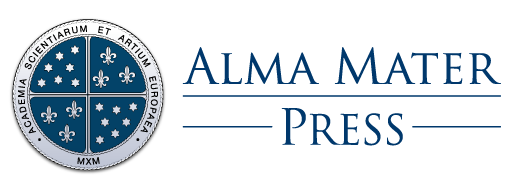Training of Archivist in the 21st Century
DOI:
https://doi.org/10.33700/2670-451X.27.2.139-148(2017)Keywords:
education, training, types of training, IIAS, Atlanti, Oman, National Records and Archives AuthorityAbstract
Archives are a memory of the people, therefore the training of archivists and other staff is extremely important. Archival material comes into the archive in all its forms and in large quantities, and the work in the archives requires different specific experiences. Thousands of documents are exchanged between archives and various offices every day. Before opening this material for the public, these documents need special treatment: they need to be organized in accordance with office management rules, it is necessary to establish the original order, to regulate issues related to access restriction, to prepare retention periods, to provide the retrieval and a whole series of other records management procedures. All these procedures cannot be carried out without the practical and theoretical education of archivists. Training and developing other skills and knowledge that relate to specific competencies must be planned and its purpose is to acquire knowledge that leads to the improvement of an individual’s or organization’s performance. Training is an ongoing process in the life of the individual according to his needs, which leads to a change of behavior based on sophisticated methods of training. The training of archivists should not take place only in the form of knowledge transfer with lectures, since such training requires more intensive approach.Records managers are not focused solely on records themselves, but on the entire recordkeeping system. Such a system includes people who create and use organization records and policies regarding individual record procedures in order to ensure access to and the use of records. The training of archivists brings significant benefits to both archives and staff. All records and information generated by archives or collected from other sources are classified or organized in such a way that they can be found and successfully used in decision-making and long-term planning, which can be achieved only through continuous training. In the article, the author will discuss the importance of training in general and for the archival organization. There are many different types of training that are used to train archivists and other archival staff. The article presents the educational activity of the IIAS in providing archival knowledge and skills and the publication of Atlanti. The content of the publication contributes to the exchange of experience between archivists of members and non-members of the Institute, and also serves as an educational tool. The article also presents the training provided for archivists by the National Records and Archives Authority in Oman.
Downloads
References
International Institute for Archival Science (2008-2010). Available at http://www.iias-trieste-maribor.eu/index.php?id=72&L=1.
Who is an archivist (2017). Available at http://www.ica.org/en/discover-archives-and-our-profession (accessed on 25.3.2017).
What’s an Archivist? (2017). Available at https://www.archives.gov/about/info/whats-an-archivist.html (accessed on 28.3.2017).
Millar, Laura A. (2010). Archives Principles and Practice, Facet publishing. London.
The Benefits of Using GoToWebinar (2017). Available at https://www.techvalidate.com/portals/the-benefi-ts-of-using-gotowebinar?collection=cost-benefit-value (accessed on 1.4.2017).
Go to Webinar (2017). Available at https://www.gotomeeting.com/en-ca/webinar/online-webinar-support (accessed on 1.4.2017).
SO 15489-1:2016. Information and documentation -- Records management -- Part 1: Concepts and principles

